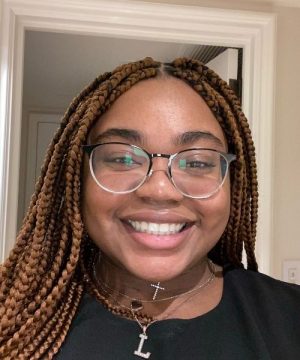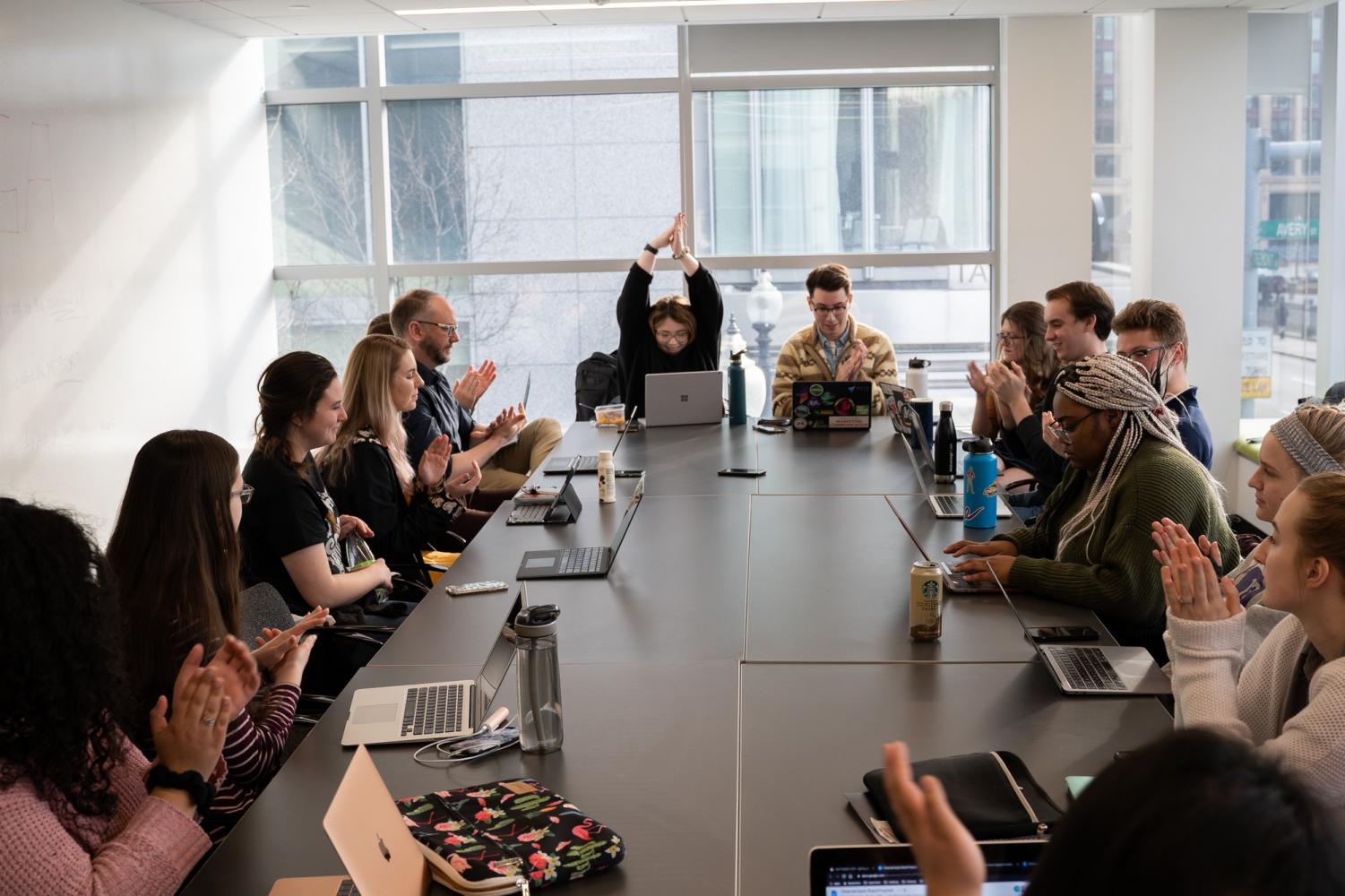
Student Government Association Executive President Lindsay Debrosse will retain the organization‚Äôs presidency through the spring semester, she confirmed to The Beacon Wednesday.¬Ý
Debrosse, who won the executive vice presidency after running a write-in campaign in SGA‚Äôs spring elections, took the reins of the organization in July, following the resignation of elected Executive President Claire Rodenbush.¬Ý
In July, Debrosse told The Beacon she aimed to bridge what she sees as a gap in communication between students and administrators, specifically on issues of social inequity at Emerson. But after months on the job, she said that outlook was naive and that she underestimated the level of bureaucracy involved in making policy changes at the college.
‚ÄúA lot of students who have issues with administration are almost always people of color, or students who identify as something that would be out of the social norm, which is kind of disgusting to say, but that’s the reality,‚Äù she said. ‚ÄúThe students are really coming here with valid experiences‚Äîproblems and honestly real solutions to solve them and they’re often turned away, where they’re getting a reaction…that the administration is offended that students assume that they’re not working or they’re not doing enough.‚Äù
The executive president serves as the organization‚Äôs primary representative, leading student assembly and setting the group‚Äôs agenda and goals. The executive president is SGA‚Äôs most public-facing position and is intended to be a liaison between the student body and administration. Traditionally, the executive president serves for the duration of the academic year in which they are elected.¬Ý
Debrosse‚Äôs ascension to the presidency came on the heels of a tumultuous semester for the organization, culminating in a drastic overhaul of its day-to-day functions via a newly re-written constitution. In the spring, the group struggled to push several proposed changes to its day to day functions through joint session and failed to fill several vacant positions.¬Ý
SGA had two executive presidents during the 2019-20 academic year. Raz Moayed held the presidency in fall 2019 before stepping down to attend the college‚Äôs Los Angeles program, clearing the way for then-Executive Vice President Will Palauskas to assume the organization‚Äôs premier role in spring 2020 via a write-in campaign during SGA‚Äôs fall 2019 elections.¬Ý
Debrosse said she feels the presidency has prevented her from pursuing some of her individual goals.¬Ý
‚ÄúSometimes, when brown or black people are in leadership positions that have historically been held by white students or white peers or their white equivalent, I’ve noticed that there’s some sort of feeling of not being able to do so much,‚Äù she said. ‚ÄúI feel like my responsibilities as President, not what I personally want as a student‚Ķcome first, always, and anything that I’ve wanted personally has really taken the backseat.‚Äù
Debrosse has overseen a particularly inactive period for the organization. The group filled a number of vacancies, particularly in its academic senate, approved just two appeals from student organizations and passed just one piece of legislation. In previous semesters, the group fielded at least eight appeals. SGA‚Äôs new constitution, which shifted the organization to a legislative model, places great emphasis on passing pieces of legislation that are intended to be calls to action for administrators.¬Ý

The piece of legislation that was passed, authored by Executive Vice President Jehan Ayesha-Wirasto, calls for administrators to allow the Social Justice Center to create a mandatory annual cultural tolerance assessment for all community members. The act also calls on Emerson to acknowledge micro and macroaggressions, provide more transparency in its investigation of racist acts on campus and define hate speech and hate crimes more clearly.
In previous semesters, the organization has filled meetings with guest speakers from various parts of administration. Members would pepper administrators with questions about the happenings in their departments.¬Ý
The organization‚Äôs treasury wing has also been noticeably inactive this semester. They typically spend weeks discussing treasury policy and funding a constant influx of appeals requests. This semester, they‚Äôve filled just two requests and met three times, as opposed to their traditional weekly meetings.¬Ý
Reflecting on her time as president thus far, Debrosse said she had aimed to do more than she has this fall.
“I’m going to be honest—I don’t think I did the best that I could have,” she said in an interview. “There’s a lot more that I wanted to do, and there’s things I wanted to do better or things I didn’t want to do, period. I’m at a point this semester where I’ve learned a lot, and I’ve grown a lot.”
The recent period of inactivity, she said, is due in part to her unexpected rise to the presidency. The SGA she inherited was also riddled with seats left unfilled by the spring elections.¬Ý
‚ÄúI never thought I‚Äôd sit here,‚Äù she said. ‚ÄúSometimes when I look back I think it was a mistake. I should have never said yes; I should never have gone into SGA. But then [I think about] everything that I‚Äôve learned about myself and everything I‚Äôve needed to learn about myself and what I‚Äôm passionate about and what I love about Emerson and [how] you can really love something but still understand it has flaws and wanting to fix that. I don‚Äôt think I ever would‚Äôve gotten that if I wasn‚Äôt [doing this].‚Äù¬Ý
After spending the semester attending classes remotely from her home in Florida, Debrosse plans to return to campus in the spring. She said she hopes leading the organization will be easier from Boston.
“It’s easier if I’m in Boston because the closer I am to the city and to school, the more likely I am to stay focused.”
Debrosse noted a sense of pride in SGA’s representation of marginalized groups on and off campus this semester, which she said has improved from previous years.
‚ÄúThis is the brownest SGA has been in a long time, if not, ever,‚Äù she said. ‚ÄúI don’t know if this is some huge milestone, but I’m glad to see a lot more students of color, of every identity, of every sexuality, representing the actuality of the people of Emerson but also the people in Boston.‚Äù
Debrosse will again have to fill a key vacancy on her executive board, as current Executive Treasurer Thomas Coughlin is not running for re-election.¬Ý
Rodenbush writes for The Beacon‚Äôs opinion section and has no involvement with news stories.¬Ý